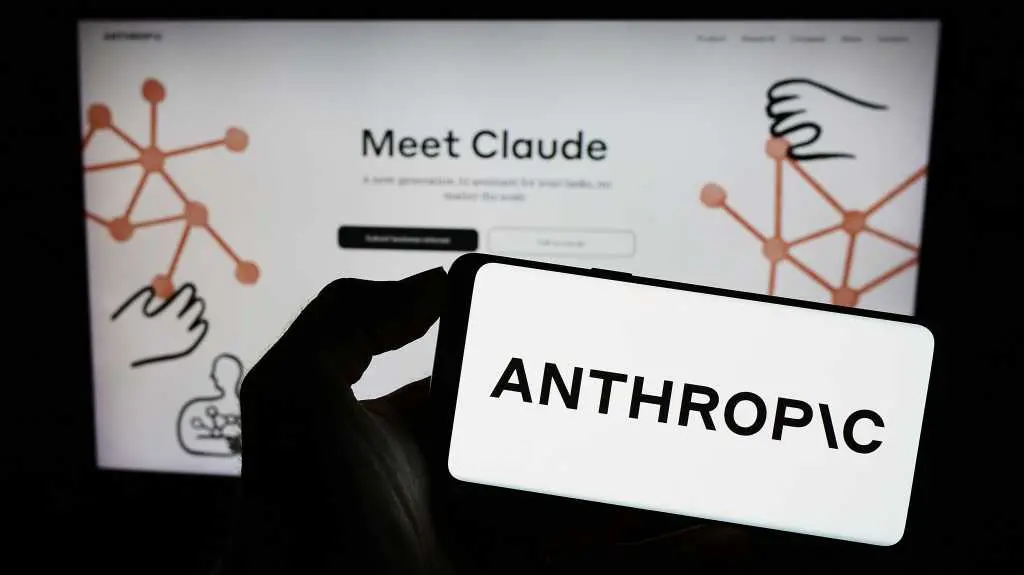Claude Sonnet 4 Upgrade: 1M Token Context Window Revolutionizes AI Capabilities
5 Sources
5 Sources
[1]
Claude gets 1M tokens support via API to take on Gemini 2.5 Pro
Claude Sonnet 4 has been upgraded, and it can now remember up to 1 million tokens of context, but only when it's used via API. This could change in the future. This is 5x more than the previous limit. It also means that Claude now supports remembering over 75,000 lines of code, or even hundreds of documents in a single session. Previously, you were required to submit details to Claude in small chunks, but that also meant Claude would forget the context as it hit the limit. With up to a 1 million context limit, you can build better apps, and Claude can remember more of your code than ever. It is worth noting that the 1 million context limit is limited to Sonnet 4. Opus 4.1 still has the old limitations because it's an expensive model. The new context limit is rolling out via the Anthropic API for customers with Tier 4 and custom rate limits, with broader availability rolling out over the coming weeks. "Long context is also available in Amazon Bedrock and is coming soon to Google Cloud's Vertex AI," Anthropic noted. "With 1M tokens you can: load entire codebases with all dependencies, analyze hundreds of documents at once, and build agents that maintain context across hundreds of tool calls. Pricing adjusts for prompts over 200K tokens, but prompt caching can reduce costs and latency." Claude's mobile and web apps will be getting the 1 million token context limit at some point in the future.
[2]
Claude Sonnet 4 upgrade enables full codebase processing in a single request
The upgrade could reshape developer workflows while raising new risks around security, compliance, and IP. Anthropic has expanded the capabilities of its Claude Sonnet 4 AI model to handle up to one million tokens of context, five times its previous limit, enabling developers to process entire codebases or large document collections in a single request. The upgrade, now in public beta via Anthropic's API and Amazon Bedrock, aims to support more complex use cases such as large-scale code analysis, large-scale document synthesis, and context-aware AI agents, with Google Cloud's Vertex AI integration expected soon. Anthropic's move comes as rivals OpenAI and Google market their own AI models with similar context limits, underscoring the race among major providers to handle larger and more complex workloads.
[3]
Claude Sonnet 4 Gets 1M Token Context Window | AIM
Anthropic's latest move to expand the context window, now in public beta, might encourage Google Gemini users to give it another try. Anthropic has rolled out extended context support for Claude Sonnet 4, expanding its capacity to handle up to 1 million tokens on the Anthropic API. The feature, now in public beta for Tier 4 (service levels) and custom rate-limit customers, is also available on Amazon Bedrock, with Google Cloud's Vertex AI support coming soon. The update represents a fivefold increase from the previous limit, enabling use cases such as analysing codebases exceeding 75,000 lines, synthesising dozens of research papers, and powering agents that maintain context across hundreds of tool calls. Anthropic says this unlocks more comprehensive workflows in large-scale code analysis, document processing, and multi-step automation. Pricing for prompts exceeding 200,000 tokens has been adjusted to reflect hi
[4]
Anthropic says Claude Sonnet 4 codes and entire project in one go
Pricing has been adjusted for the larger context window. Inputs up to 200,000 tokens retain current rates of $3 per million input tokens and $15 per million output tokens, while larger prompts cost $6 and $22.50 respectively. Anthropic announced that its Claude Sonnet 4 model can now handle 1 million tokens of context in a single request -- a fivefold increase over previous limits. The feature, available in public beta through Anthropic's API and Amazon Bedrock, enables developers to load full codebases of more than 75,000 lines without breaking them into smaller parts. This expanded capacity allows Claude to analyze complete projects, synthesize large document sets, and support AI agents that maintain coherence across complex workflows. Anthropic says the model achieved 100% accuracy in internal "needle in a haystack" tests, demonstrating its ability to locate details within massive text volumes. Developers and platform partners report that the update supports true production-scale engineering, including multi-day coding sessions and repository-wide analysis. Early enterprise adopters span industries from financial services to legal tech. Pricing has been adjusted for the larger context window. Inputs up to 200,000 tokens retain current rates of $3 per million input tokens and $15 per million output tokens, while larger prompts cost $6 and $22.50 respectively. Anthropic argues that caching and quality gains offset higher costs compared to retrieval-augmented approaches. The launch comes as Anthropic faces competition from OpenAI and Google, both of which offer similar context sizes. However, Anthropic emphasizes Claude's strength in coding and reasoning, and currently holds 42% of the AI code generation market, though much of its revenue relies on key customers like GitHub Copilot and Cursor. The 1 million token window, equivalent to about 750,000 words, marks a technical leap in AI memory and attention mechanisms. While raising safety considerations, the upgrade positions Claude as a full-scale development partner capable of understanding and improving entire software systems.
[5]
Anthropic Unveils 5X Expansion for Claude's Prompt Window | PYMNTS.com
That's up five-fold from prior limits. This larger context window can be accessed directly from Anthropic through its application programming interface (API) or Amazon Bedrock. The extended context window allows Claude to process far larger data sets in a single prompt, such as entire codebases of more than 75,000 lines or dozens of research papers, according to a Tuesday (Aug. 12) blog post. Anthropic said the change enables new classes of data-intensive applications in software engineering, research and automation. For developers, the company pointed to three key use cases. First: large-scale code analysis, where Claude can load all source files, tests and documentation to map project architecture and suggest improvements that account for the entire system design. Second: document synthesis, which allows users to process and analyze large volumes of legal, academic or technical material while preserving context across hundreds of documents. Third: context-aware agents, where developers can maintain full coherence across hundreds of tool calls and multi-step workflows by including complete API documentation, tool definitions and interaction histories. Other AI models with large context windows include Google's Gemini, OpenAI's GPT-4.1 and Alibaba's Qwen, with each offering one-million-token context windows. Google has promised to double the context window, while Meta has exceeded its rivals with a 10-million window for Llama 4 Scout. These and other developments from tech companies are the main ones driving AI adoption, according to a PYMNTS Intelligence report, Tech on Tech: How the Technology Sector is Powering Agentic AI Adoption. "The technology has been hyped ever since OpenAI debuted in January an autonomous AI agent that can fill out online forms, make grocery lists and generate memes," according to the report. But a sticking point has been the size of the input capacity. Claude Sonnet 4's expanded capacity comes with a revised pricing structure. Prompts up to 200,000 tokens cost $3 per million tokens for input and $15 for output. Prompts above that threshold are priced at $6 for input and $22.50 for output. Anthropic noted that prompt caching, or storing data that's already been processed to avoid reprocessing, can reduce costs and latency, while batch processing with the one-million context window can deliver an additional 50% cost savings. Early adopters are already integrating the expanded model into production workflows. Bolt.new, which offers a browser-based web development platform, uses Claude Sonnet 4 for code generation. London-based iGent AI is applying the feature to Maestro, its AI software engineering agent that turns conversations into executable code. Long-context support for Claude Sonnet 4 is currently limited to customers with Tier 4 and custom rate limits, with wider rollout planned in the coming weeks. Anthropic said it is also exploring ways to extend the feature to other Claude products.
Share
Share
Copy Link
Anthropic's Claude Sonnet 4 now supports a 1 million token context window, enabling processing of entire codebases and large document sets in a single request. This upgrade positions Claude as a formidable competitor in the AI market.
Claude Sonnet 4's Groundbreaking Upgrade
Anthropic has unveiled a significant upgrade to its Claude Sonnet 4 AI model, expanding its context window to an impressive 1 million tokens
1
. This fivefold increase from the previous limit represents a major leap in AI capabilities, enabling the model to process vast amounts of information in a single request2
.
Source: InfoWorld
Enhanced Capabilities and Use Cases
The expanded context window allows Claude to handle more complex tasks, including:
- Large-scale code analysis: Claude can now process entire codebases exceeding 75,000 lines, including source files, tests, and documentation
1
. - Document synthesis: The model can analyze hundreds of documents simultaneously, making it ideal for processing large volumes of legal, academic, or technical material
5
. - Context-aware AI agents: Claude can maintain coherence across hundreds of tool calls and multi-step workflows
3
.
Availability and Integration

Source: PYMNTS
The new feature is currently in public beta, accessible through:
- Anthropic's API (for Tier 4 and custom rate-limit customers)
- Amazon Bedrock
- Google Cloud's Vertex AI (coming soon)
2
Pricing Structure
Anthropic has adjusted its pricing model to accommodate the larger context window:
- Inputs up to 200,000 tokens: $3 per million input tokens, $15 per million output tokens
- Inputs over 200,000 tokens: $6 per million input tokens, $22.50 per million output tokens
4
To optimize costs, Anthropic recommends using prompt caching and batch processing, which can lead to additional savings
5
.Related Stories
Market Impact and Competition

Source: AIM
This upgrade positions Claude Sonnet 4 as a strong competitor in the AI market, challenging models from OpenAI and Google
2
. Anthropic currently holds 42% of the AI code generation market, with key customers including GitHub Copilot and Cursor4
.Early Adoption and Future Prospects
Several companies are already integrating the expanded model into their workflows:
- Bolt.new: Using Claude Sonnet 4 for code generation in their browser-based web development platform
- iGent AI: Applying the feature to Maestro, an AI software engineering agent
5
Anthropic is exploring ways to extend the 1 million token context window to other Claude products, potentially reshaping developer workflows and AI applications across various industries
1
.References
Summarized by
Navi
[1]
Related Stories
Anthropic Boosts Claude AI with Massive Context Window and Improved Opus Model
06 Aug 2025•Technology

Anthropic releases Claude Opus 4.6 as AI model advances rattle software stocks and cybersecurity
05 Feb 2026•Technology

Anthropic releases Claude Sonnet 4.6 with human-level computer use and coding improvements
17 Feb 2026•Technology

Recent Highlights
1
Pentagon threatens to cut Anthropic's $200M contract over AI safety restrictions in military ops
Policy and Regulation

2
ByteDance's Seedance 2.0 AI video generator triggers copyright infringement battle with Hollywood
Policy and Regulation

3
OpenAI closes in on $100 billion funding round with $850 billion valuation as spending plans shift
Business and Economy





